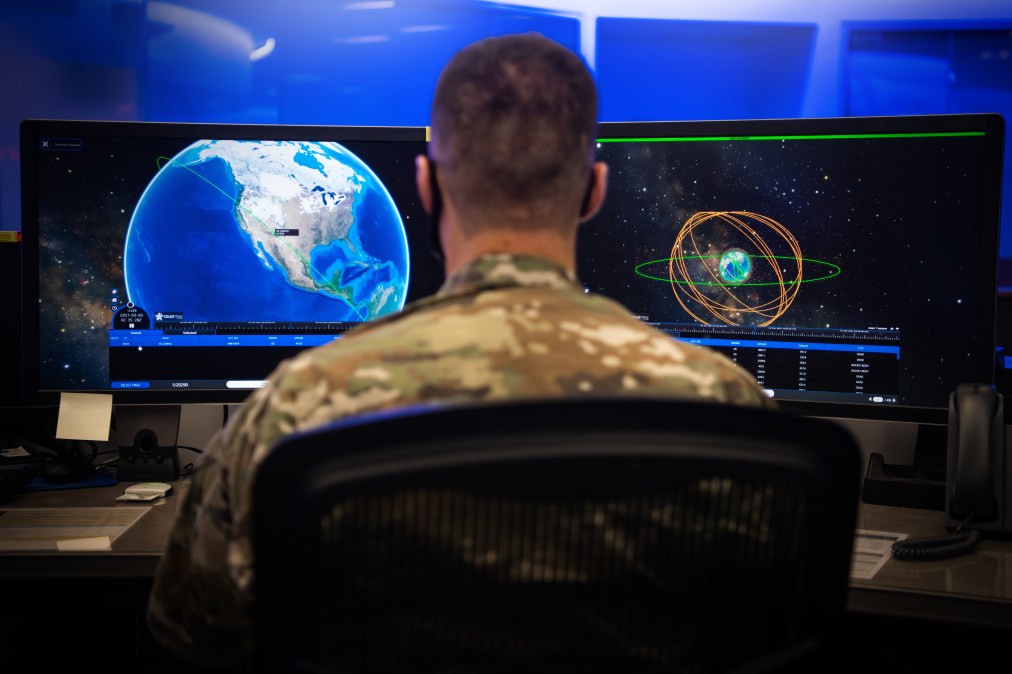MARK POMERLEAU

The Space Force has been in talks since early this year about establishing a formal cyber component with U.S. Cyber Command, according to officials.
Each military service besides Space Force currently has a service cyber component to Cybercom — just as they do for all combatant commands — and has requirements to provide Cybercom a set number of personnel and teams to the joint cyber mission force, which conducts offensive and defensive cyber operations.
Since the creation of Space Force in 2019, there was speculation as to if and when it would supply a service cyber component to Cybercom. However, to date, there were no formal or concrete plans to do so.
“We are in process of working with Cyber Command of what does their service component to Cyber Command, the Space Force service component to Cyber Command look like,” Lt. Gen. DeAnna Burt, the Space Force’s deputy chief of space operations for operations, cyber and nuclear, said at the annual DAFITC conference Wednesday.
“Partnering with 16th Air Force [the Air Force’s service cyber component], with our own mission analysis team, [officials are discussing] what do we see that footprint for Cyber Command to make that connection as a Space Force service component in the future … [and] when do we get to our own cyber mission teams?” Burt added.
According to a Space Force spokesperson, coordination to establish a formal service component has been ongoing since early 2023, but there isn’t a confirmed date for activation and efforts are still in a preliminary phase.
There are currently two guardians from Space Operations Command that are members of the Air Force’s cyber mission force, a SpOC spokesperson told DefenseScoop in August. Burt on Wednesday raised the prospect that in the future, Space Force cyber mission force teams would directly support U.S. Space Command and its cyber needs.
“Who better to defend on behalf of U.S. Space Command their key cyber terrain, or to go after the enemy’s key cyber terrain in space than guardians,” she said. “Our goal is to grow to those cyber mission teams, so that first relationship with Cyber Command and the service component will help us grow to that structure in the future to then go at the enemy face-on.”
Currently, the Air Force’s cyber component through its Joint Force Headquarters-Cyber Air Force, is the coordinating authority for planning and synchronizing cyber support and operations for Spacecom.
During his confirmation to be chief of space operations, Gen. Chance Saltzman said it would take significantly more resources to create a Space Force service cyber component for Cybercom.
“Since all other Services provide teams to the Cyber Mission Force (CMF), it is reasonable for some to assume that the Space Force should also provide teams. However, the analysis of manpower required to standup the USSF did not include cyber manpower requirements to provide teams to the CMF,” he told lawmakers. “[A]ny requirement to support the CMF … would require a commensurate increase to USSF manpower to support this new mission area.”
Cybercom owns the authorities to conduct offensive cyber operations around the globe, which are conducted by the joint cyber mission force, mostly by combat mission teams. Thus, the services — and in this case, Space Force — would not have offensive teams to conduct offensive cyber operations outside of a Cybercom contribution.
The Space Force does have cyber personnel, mostly in its Delta 6, that perform cyber defense of Space Force assets such as ground terminals.
“We are more focused as a service. And what we brought to the Space Force were our cyber operators and our cyber squadrons to defend our mission systems and our key cyber terrain in both ground, space and the receivers in order to defend against China and Russia coming into those — because it is our soft underbelly,” Burt said.
“We also have our own [cybersecurity service providers] within the Space Force, again, looking at how do we defend across our installations, because we are employed in place, so we depend on our infrastructure on the installation because we do fight from our installations 24/7, 365. How do we have that right infrastructure support, the right guardians in the loop to get after defending those systems?” she said.
No comments:
Post a Comment